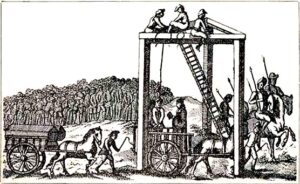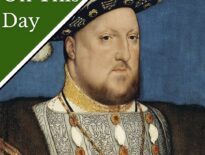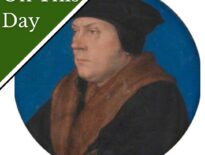Duckett came from Westmorland and although he was named after his godfather James Leybourn, who was hanged, drawn and quartered at Lancaster in 1588 for denying Queen Elizabeth I's supremacy, Duckett was brought up as a Protestant. However, he converted to Catholicism during his apprenticeship in London, when a man named Peter Mason gave him a copy of "The Foundation of the Catholic Religion". His newfound zeal for Catholicism led to him being questioned and imprisoned for not attending Protestant services.
He married a widow in around 1589, but of their 12-year marriage, he spent 9 in prison due to him dealing in books, which, as Richard Challoner notes, "he furnished Catholics, as well for their own comfort and instruction, as for the assistance of their neighbours' souls".
Duckett was arrested in March 1601 after imprisoned bookbinder Peter Bullock informed on him in the hope of release. Bullock had bound some Catholic works for Duckett. Bullock claimed that Duckett had twenty-five copies of Jesuit martyr Robert Southwell's "An Humble Supplication to her Maiestie". Duckett's premises were searched and although they didn't find copies of Southwell's book, they did find other Catholic works. Duckett was thrown into Newgate Prison .
At Duckett’s trial, the jury found him not guilty, but the judge asked them to reconsider and he was found guilty of felony and sentenced to death.
On 19th April 1601, James Duckett was hanged along with Peter Bullock. Richard Challoner writes of that day:
On Monday morning, the day designed for his death, his wife came to speak to him, which she could not without tears; he bid her be of good comfort, and said, his death was no more to him than to drink off the caudle which stood there ready for him. If I were made, said he, the queen’s secretary or treasurer, you would not weep; do but keep yourself God’s servant, and in the unity of God’s church, and I shall be able to do you more good, being now to go to the King of kings.
As you love me, do not grudge that the good men, (the three priests,) are reprieved, and not I, for I take it for a great favour from Almighty God, that I am placed amongst the thieves, as he himself, my Lord and Master was. As he was carried towards the place of execution, in the way, his wife called for a pint of wine, to drink to him; he drank, and desired her to drink to Peter Bullock, and freely to forgive him; for he, after all his hopes, was in the self-same cart, carried also to execution.
Being come to the place, and both he and Peter standing up in the cart, Peter, saith he, the cause of my coming hither God and thyself knowest, for which I, from my heart, forgive thee, and that the world, and all here may witness that I die in charity with thee, he kissed him, both having the ropes about their necks. Then he said to him, thy life and mine are not long; wilt thou promise me one thing? if thou wilt, speak; wilt thou die as I die, a catholic? Bullock replied, he would die as a Christian should do: and so the cart was drawn from under them.
Also on this day in Tudor history...
Sources
- Challoner, Richard (1839) Memoirs Of Missionary Priests And Other Catholics Of Both Sexes That Have Suffered Death In England On Religious Accounts From The Year 1577 To 1684, Two Volumes in One, Philadelphia, John T Green.




Leave a Reply